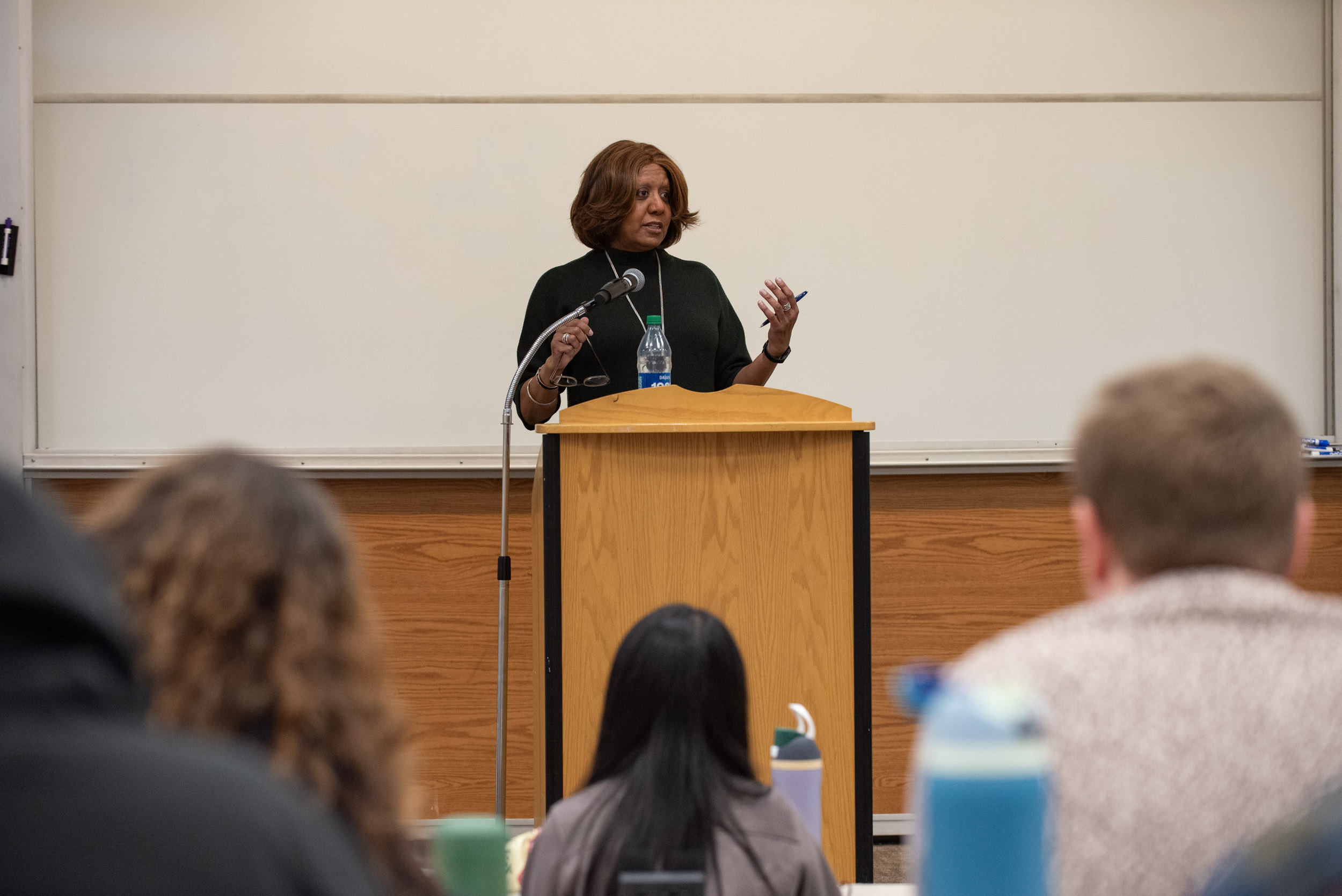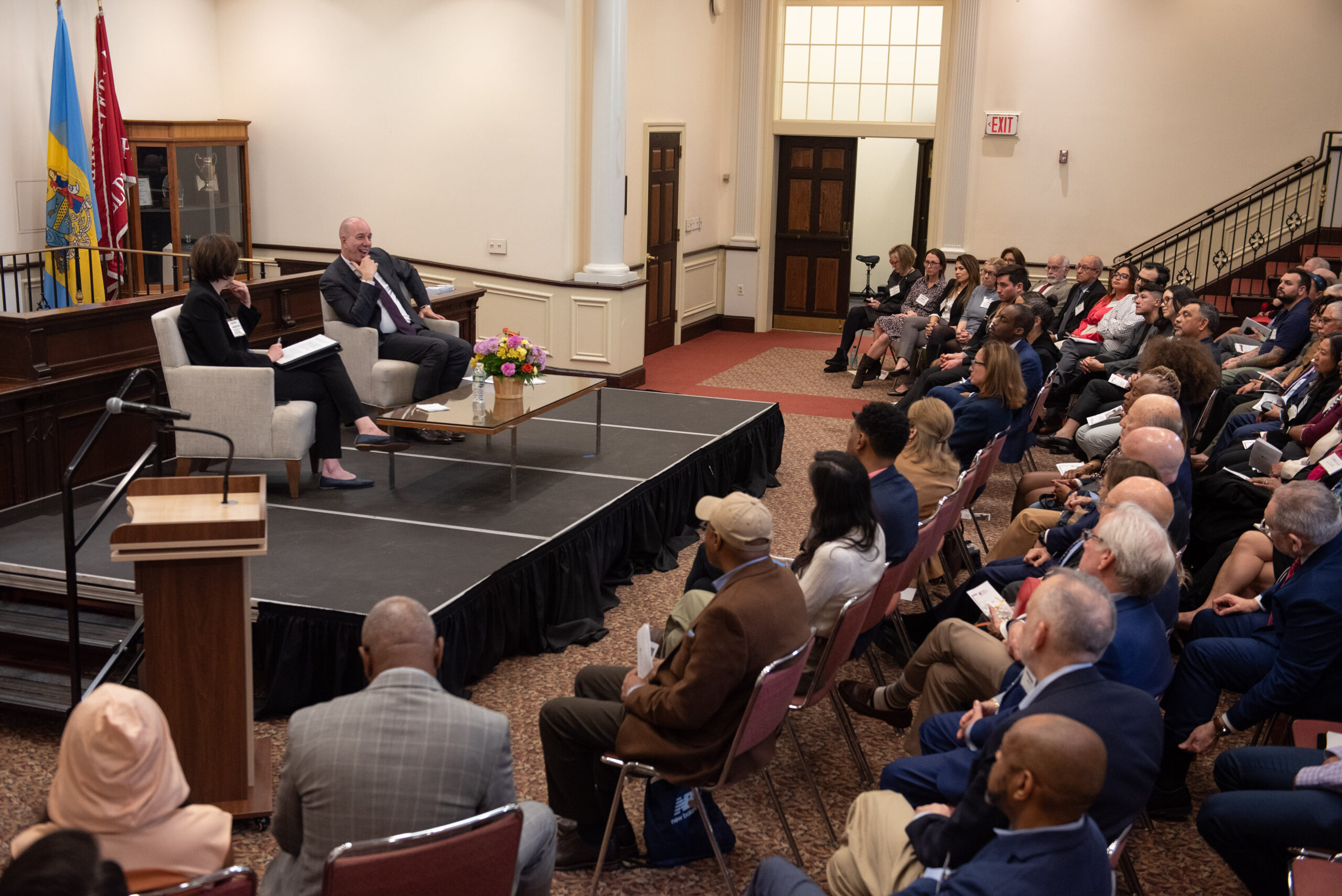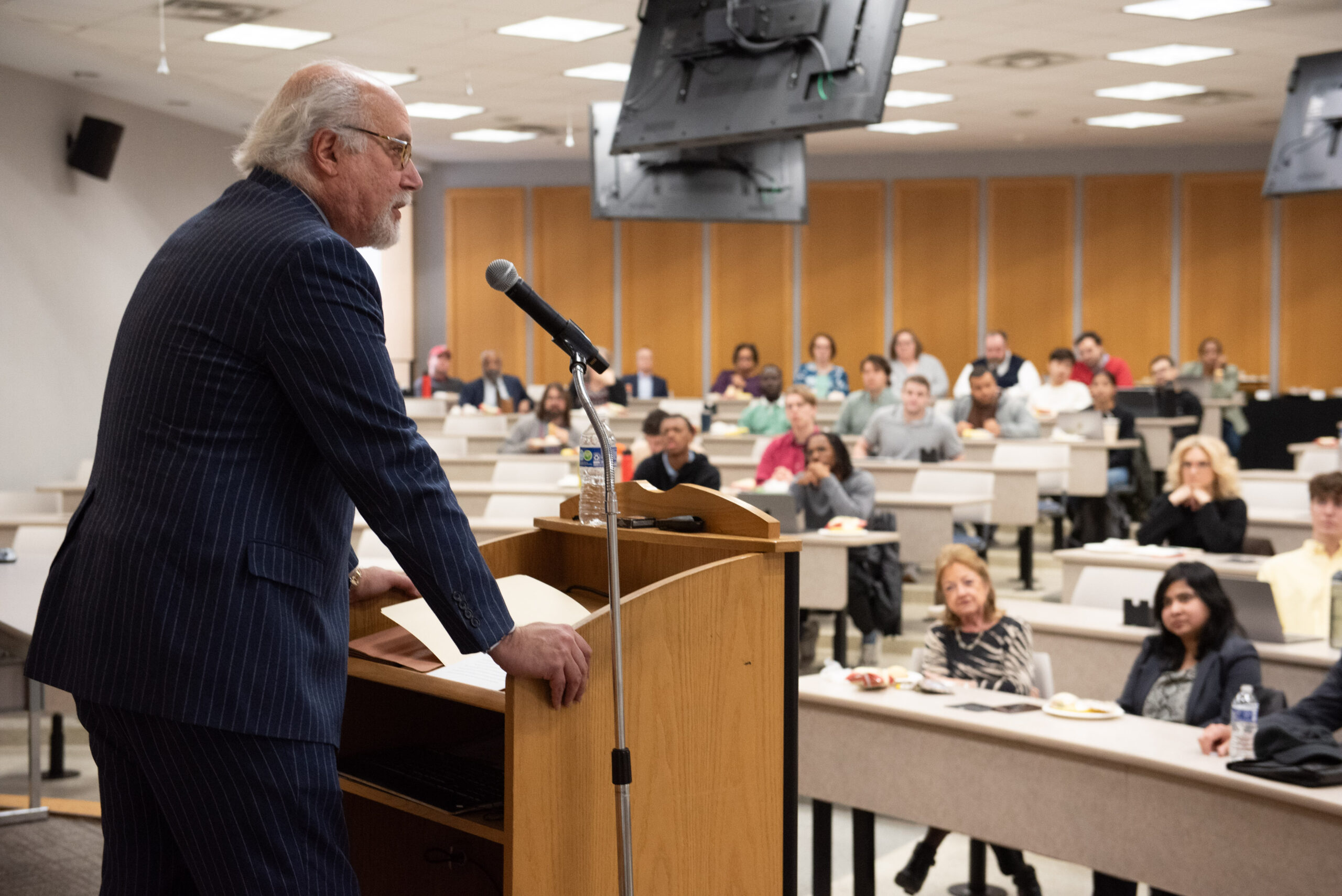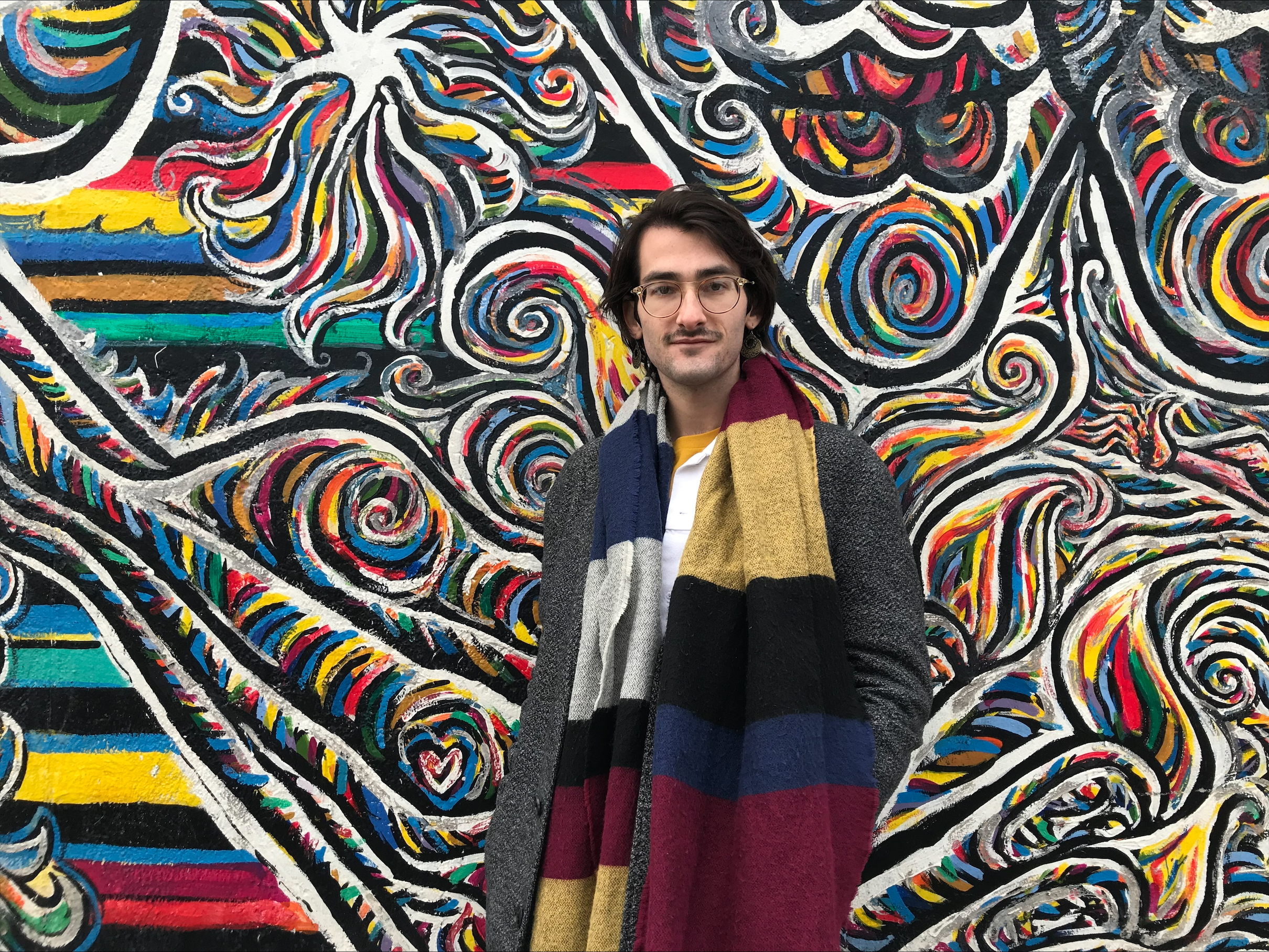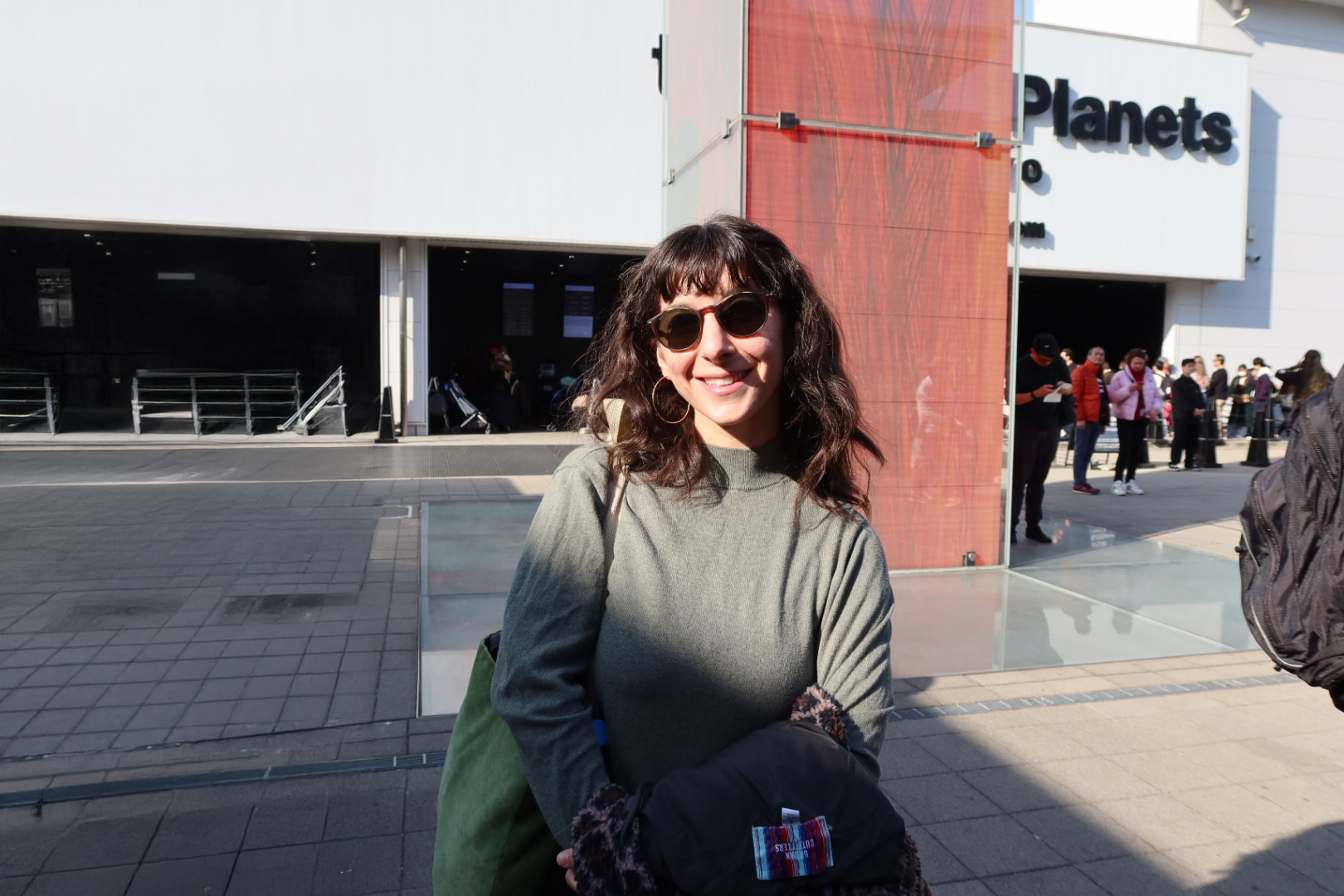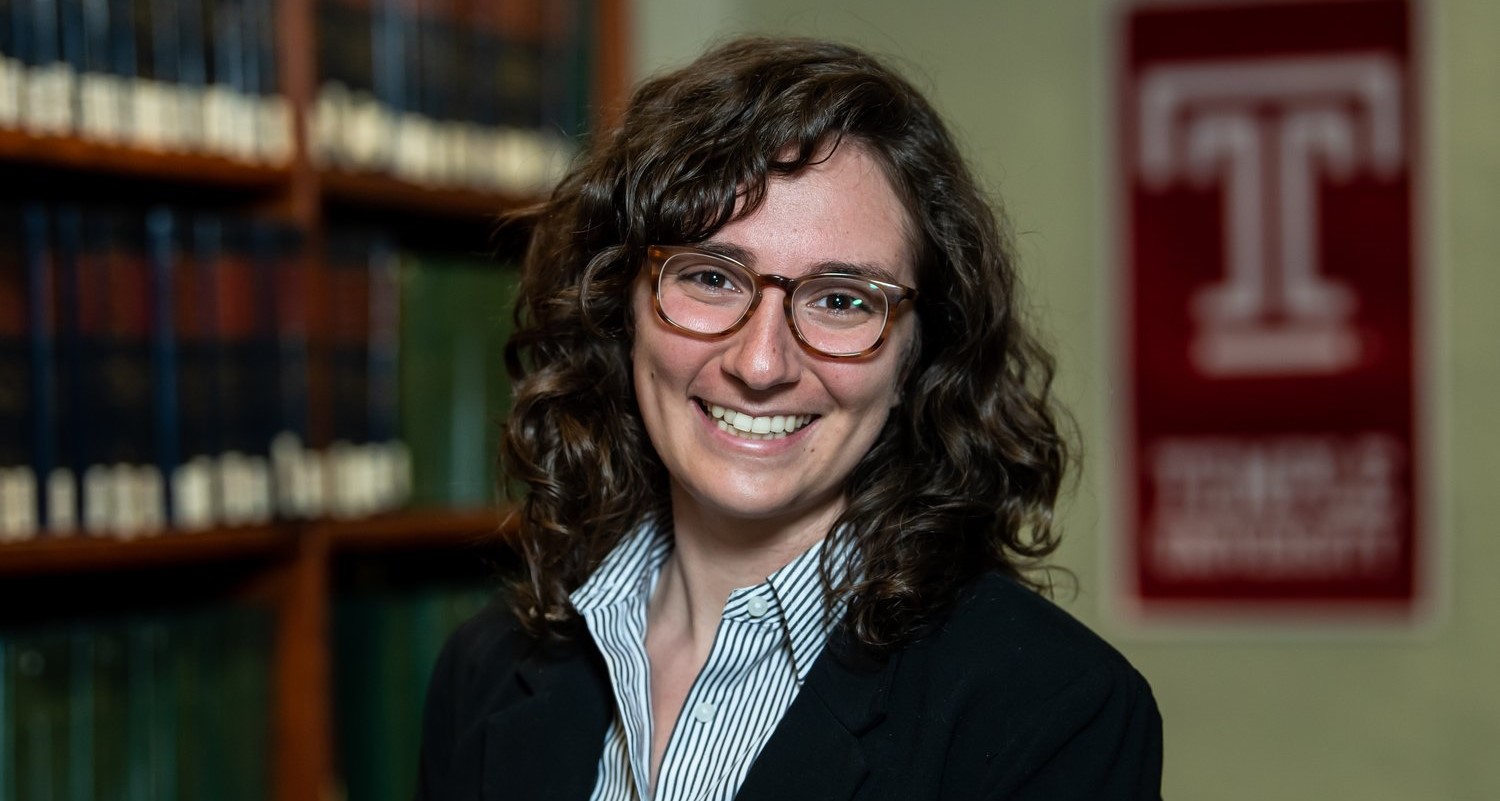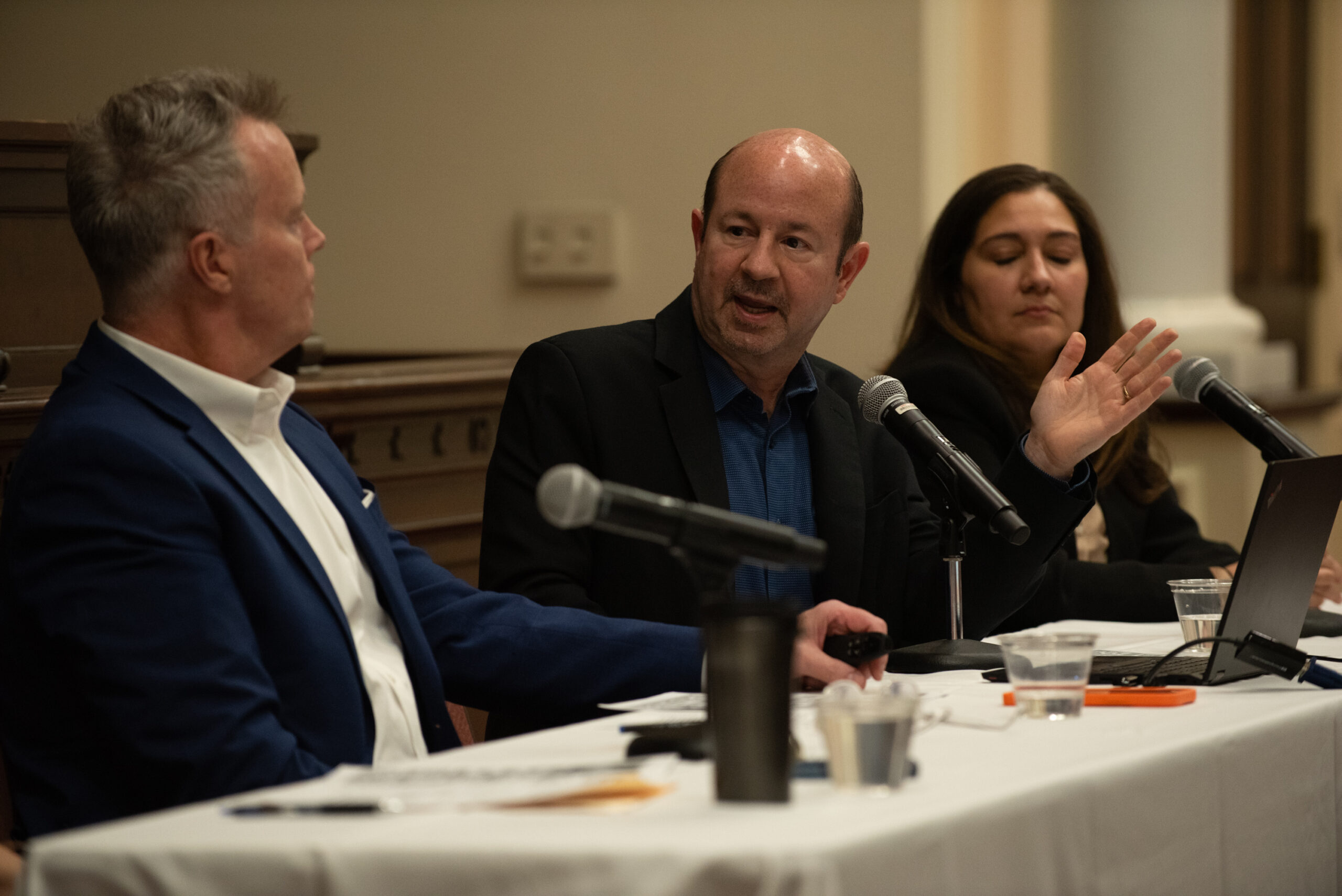Judge Tamara W. Ashford of the U.S. Tax Court: Spring 2025 Fogel Lecture
As we navigate through the many challenges that law school provides, it becomes increasingly easy to focus entirely on the immediate next step and lose sight of the opportunities that will come down the road. When it comes to thinking about post-graduation work, that often means preparing oneself for a rank-and-file “first job” and forgetting all about what amazing career opportunities await just a few years ahead. The annual Fogel Lecture is an incredible reminder of what a legal career has to offer when we remember to raise our sights and look past the next step to focus on the entire picture. On February 26, the Honorable Tamara W. Ashford of the U.S. Tax Court delivered the 2025 Fogel Lecture, joining the long list of former and current government officials who have shared their views and career trajectories with the Temple Law community since 2011. Standing in front of nearly 200 law students, faculty, and other legal professionals, Judge Ashford discussed her journey in tax in a lecture titled “For the Love of Tax.” Tax …

